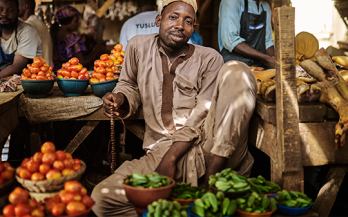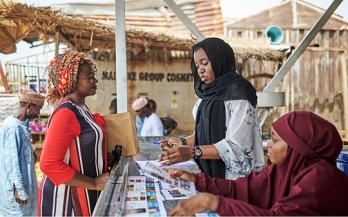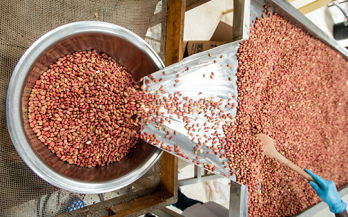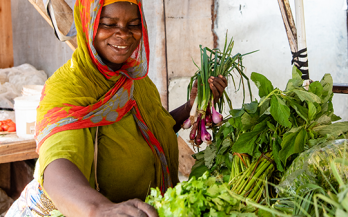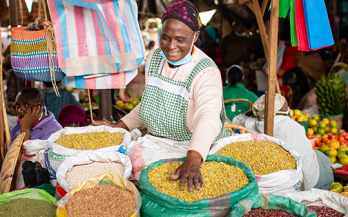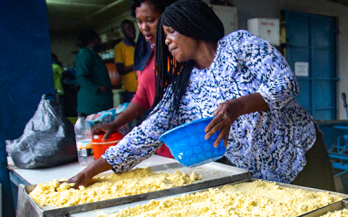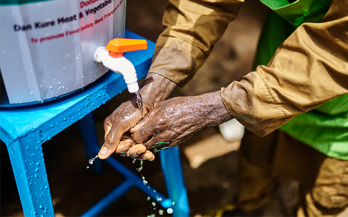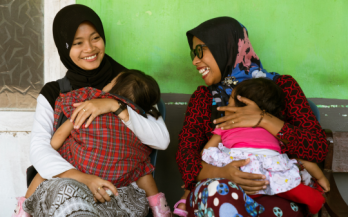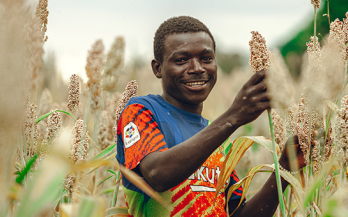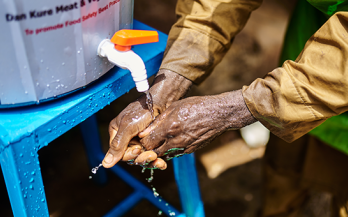The NFCMS 2021 provides valuable insights and highlights the need for strategic investments in agriculture, nutrition, and food systems. While progress has been made, there is a clear imperative for improved implementation and expanded coverage of nutrition interventions across diverse population groups.
Reducing foodborne disease in low- and middle-income countries (LMICs) is crucial for advancing nutrition, health, and other development goals. The U.S. Agency for International Development (USAID)/Feed the Future’s Evidence and Action Towards Safe, Nutritious Food (EatSafe) program sought to harness consumer demand as a mechanism to improve food safety practices and generate evidence on how to raise consumer demand for safe, nutritious foods in traditional market settings—the main source of food for most LMIC consumers.
To ensure the success of LSFF, governments can establish and strengthen national mandatory fortification standards as well as regulatory frameworks that ensure access to high-quality fortified foods across the entire population. Strong regulations also help ensure a level playing field for fortified food producers where all are held to the same standard.
Buguruni market is a traditional food market in Dar-es-Salaam, Tanzania with about 2,630 vendors selling their produce to about 70,000 consumers daily. In a rapid assessment conducted in 2020, almost a third of consumers reported concerns related to food safety when shopping in the market.
GAIN, along with the Kenya Tea Development Agency Foundation (KTDA Foundation) coordinated and implemented a training package for the vegetable kiosk vendors within the community. It was targeted at food vendors and small traders around tea factories and other stakeholders around their business sites.
To scale up the production and consumption of biofortified foods through commercialisation, GAIN and
HarvestPlus partnered in 2019 to implement the Commercialisation of Biofortified Crops (CBC)
Programme
EatSafe: Evidence and Action Towards Safe, Nutritious Food (EatSafe) is a USAID Feed
the Future programme that works in traditional markets in Nigeria and Ethiopia to
improve food safety.
Micronutrient malnutrition remains a significant challenge in Indonesia, particularly among impoverished populations who struggle to afford and access nutrient-rich foods. Iron deficiency anemia is especially concerning, affecting 48.9% of pregnant women and 38.5% of children across the country. To address these gaps, the Ministry of Health, in collaboration with the Global Alliance for Improved Nutrition (GAIN), conducted a comprehensive Micronutrient Gap Assessment (MGA). This assessment aimed to evaluate micronutrient intake levels among Indonesians and identify the potential benefits of rice fortification in meeting recommended dietary requirements.
Overreliance on a few main crops, as well as poor soil health, reduce yields, hinder achievement of food security and nutrition objectives, and increase agricultural vulnerability to climate change. To address this, the Vision for Adapted Crops and Soils (VACS), launched by the United States in partnership with FAO and the African Union, and as part of the whole-of-government Feed the Future initiative, seeks to support soil health as well as breeding of traditional and indigenous crops in Africa.
Foodborne disease is a major global health challenge, causing millions of illnesses every year – mostly in low- and middle-income countries – and hindering achievement of other global goals, such as improved nutrition. Since contamination of food can happen at any point ‘from farm to fork’, reducing the burden of foodborne illness requires a whole-of-food-system approach: one that considers all actors and activities that play a role in production, processing, distribution, preparation, and consumption of food. The objective of this paper is to discuss how to enact such a food system approach to food safety, with a focus on LMICs.
